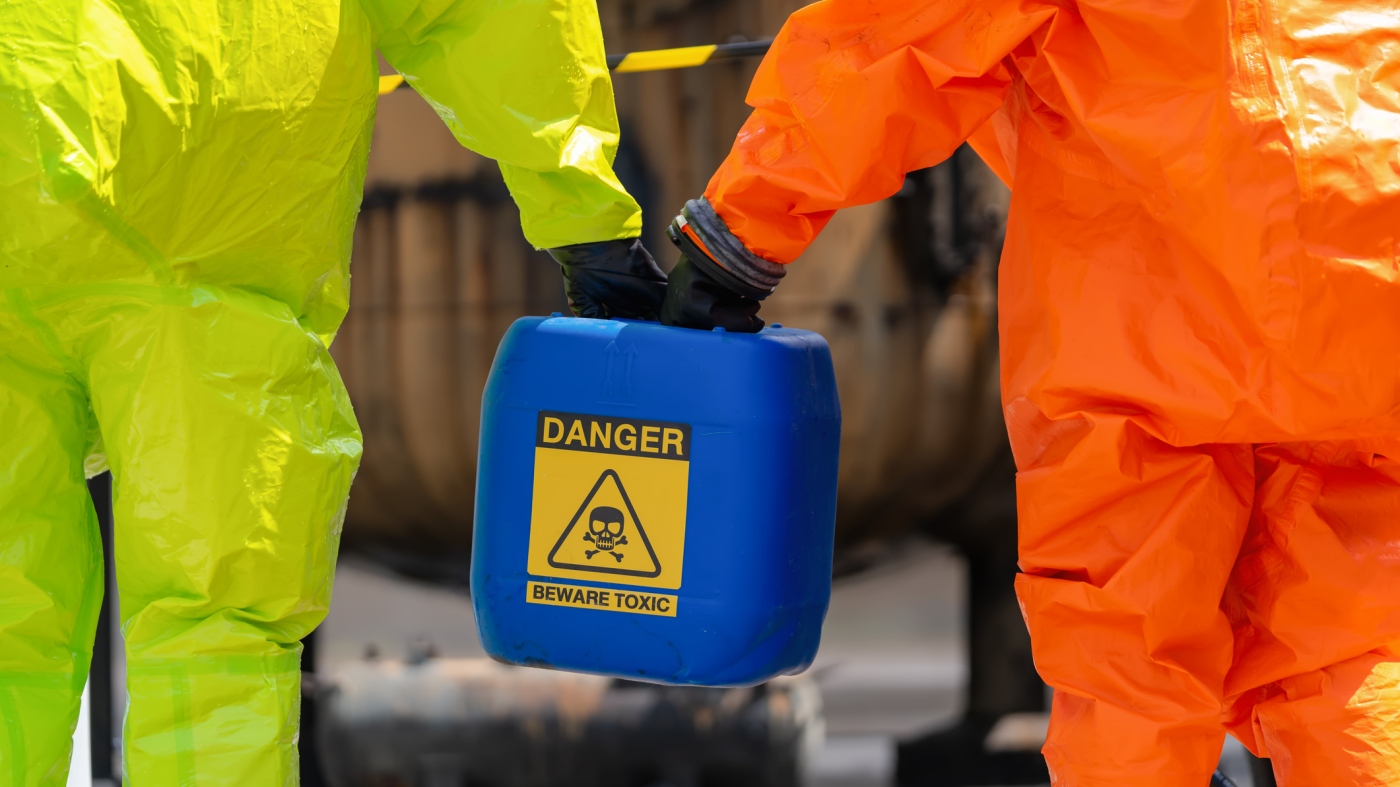The National Institute for Occupational Safety and Health investigates possible dangerous situations and substances found in the workplace. Cravetiger/Getty Images/Moment RF hide caption

Studies on how workplace exposure to chemicals like formaldehyde and phthalates may harm reproductive health, an investigation into a possible cancer cluster at a state university, the only national program tracking blood lead levels in adults.

These are among the many casualties of the Trump administration's decision to level a research agency that has devoted much of its energy over the past five decades to reducing people's exposure to harmful chemicals and other dangerous conditions in the workplace.

The National Institute for Occupational Safety and Health, or NIOSH, is expected to lose upwards of 900 employees - the vast majority of its staff - by the end of June as a result of the mass firings carried out by Secretary of Health and Human Services Robert F. Kennedy Jr.

"It's been almost destroyed," says Dr. Robert Harrison, who directs the Occupational Health Services at the University of California San Francisco.

NIOSH, part of the Centers for Disease Control and Prevention, has a broad mandate to prevent injury, illness and death in the workplace, which touches on many industries and potential hazards.

Only a few pieces of the agency will be left, including the World Trade Center Health Program, and even those may be hampered by the personnel cuts. The impact on firefighters and coal miners has already provoked strong backlash, even from some within the Republican party, leading to a small number of employees being told to return to work, at least temporarily.

But the fallout will extend well beyond a few industries.

NPR interviewed a dozen NIOSH staff whose positions are being eliminated. NPR is not using their names because they are still employed and not authorized to speak to the press.

They stress the agency is instrumental in funding and advancing research on carcinogens and other dangerous substances - a concern that Secretary Kennedy and President Trump have brought up repeatedly in their pitch to "Make America Healthy Again."

"The irony is what we do at NIOSH is focus on preventing chronic disease and getting rid of toxins," said one senior scientist. "It makes no sense."

Industrial hygienists, toxicologists, physicians and others at the agency work directly with industries in which people can be exposed to high levels of pollutants and other hazards, identifying substances that may also pose a risk to the general public.

"If we are not evaluating emerging chemicals, if we are pretending they don't exist, we are going to see the health consequences, maybe 10 or 20 years from now," another scientist told NPR.

A statement from the Department of Health and Human Services explains that NIOSH will eventually join the newly created Administration for a Healthy America and that "critical initiatives under NIOSH will remain intact" as the "agency continues to streamline its operations."
That's far from what staff at NIOSH describe, though.

They say the wholesale elimination of entire teams and programs has brought many key functions to a standstill and will be difficult to revive.

A database that tracks cancer in firefighters has stopped enrollment. The team that approves respirators - which assures the equipment can protect against everything from asbestos to airborne pathogens - has been shut down. The staff who green light funding for local health departments and research centers are gone.
The agency is no longer responding to requests to conduct on-the-ground investigations of health hazards if there are reports of illness within a workplace or other emerging threats.
In just one division, a NIOSH scientist tells NPR that about 30 of these "health hazard evaluations" will never be completed because of the sudden layoffs - investigations related to concerns about public and worker exposure to mycobacteria, asthma linked to the use of chemical disinfectants in a hospital, and silica in home construction, to name a few.
"It's all well and good to talk about streamlining the government," says Dr. Philip Landrigan, an epidemiologist and occupational physician at Boston College. "But there's no way in the world that Mr. Kennedy's new agency is going to be able to protect workers' health after they've let 90% of the subject matter experts go," he says.
While most NIOSH employees were notified in early April that they would lose their jobs, some were immediately placed on administrative leave, while others are still waiting to receive the official notices.
Catherine Blackwood had spent the past three years investigating potential cardiac and pulmonary consequences of prolonged mold exposure - part of a broader effort to pinpoint signs of
